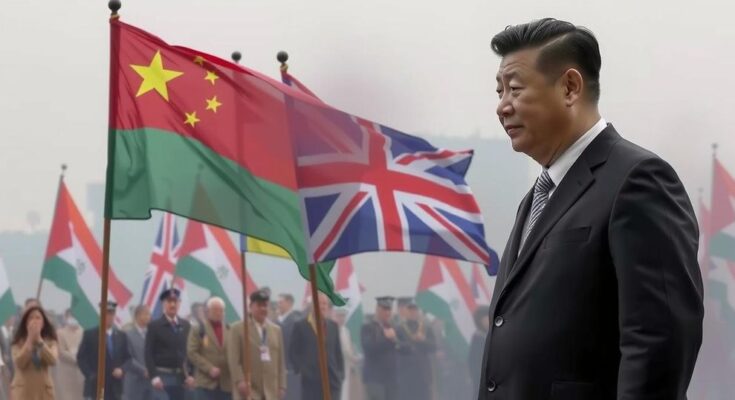At the U.N., Australia and 13 other countries criticized China for alleged human rights abuses in Xinjiang and Tibet, leading to China’s counterargument focused on the situation in Gaza. U.N. reports suggest possible crimes against humanity in Xinjiang, while representatives call for action and accountability from both China and involved parties in the Gaza conflict. This reflects a complex geopolitical landscape where human rights remain a contentious and multifaceted issue.
At the United Nations, Australia, the U.S., and 13 other nations expressed their concerns over China’s alleged human rights violations in Xinjiang and Tibet. China responded sharply, criticizing these countries for overlooking the dire situation in Gaza, where humanitarian crises reportedly worsen. Debates on China’s treatment of its largely Muslim population have become routine at the UN, highlighting a stark division in addressing global human rights concerns. Recent U.N. reports indicate that China’s treatment of Uyghurs may involve crimes against humanity due to the arbitrary detention practices in Xinjiang. In response to the concerns raised, Australia’s U.N. Ambassador, James Larsen, called for China to fulfill its international human rights responsibilities, including releasing those held without due process. This message was echoed by representatives from several nations urging immediate action on the highlighted issue. The Chinese delegation, led by U.N. Ambassador Fu Cong, rejected allegations of human rights abuses, claiming they were fabrications designed to create conflict. Fu emphasized the tragedy unfolding in Gaza, criticizing Western states for neglecting its humanitarian crisis while focusing on Xinjiang issues. He asserted that Western nations’ selective outrage amounts to hypocrisy, especially regarding their claims of upholding human rights for Muslims. Recent violent incidents between Hamas and Israel have escalated tensions in Gaza, resulting in significant casualties. Fu highlighted these numbers to challenge Western nations to reconsider their narratives, suggesting that their inaction reflects poorly on their commitment to human rights. This highlights the growing complexity of international relations and the interconnectedness of global human rights discourses. Amidst these tensions, U.S. representatives have echoed the need for urgent ceasefire negotiations in Gaza while condemning China’s human rights practices. Deputy U.S. Ambassador Lisa Carty criticized China’s actions in Xinjiang, Tibet, and Hong Kong at the same time calling for the humane treatment of hostages and the provision of aid to Gaza. This ongoing dialogue reflects a broader struggle for accountability across nations regarding human rights practices. Pakistan’s U.N. Ambassador Munir Akram expressed solidarity with China, stating that regional issues like Xinjiang and Tibet are internal matters for Beijing. This perspective reveals a rift in opinions, with 80 countries advocating against politically motivated human rights discussions. Ultimately, discussions reiterated that no country is immune to scrutiny regarding human rights, and each state is responsible for adhering to its commitments on the international stage.
The tensions surrounding human rights discussions at the U.N. reflect broader geopolitical divides. As nations debate China’s alleged human rights abuses towards its Muslim population, particularly the Uyghurs in Xinjiang and the treatment of Tibetans, the complexities of international relations emerge. Simultaneously, the situation in Gaza signifies the pressing human rights challenges faced globally today, aligning discussions about accountability for different nations in how they address humanitarian crises.
In the ongoing dialogue at the U.N., the clash of narratives surrounding human rights reflects both regional and global crises. While some nations condemn China’s human rights record, others emphasize the tragedies occurring in Gaza and call for a more equitable discourse on accountability. The discussion embodied at the U.N. reveals the intricate web of international relations where human rights are both a shared concern and a source of contention among nations.
Original Source: www.usnews.com



